
Sarah Chartock is an Associate Professor of Political Science. She is originally from Great Barrington, Massachusetts. She received her Bachelor’s Degree from Cornell University, and her M.A. and Ph.D. from the Department of Politics at Princeton University. Dr. Chartock joined the faculty at The College of New Jersey in 2008.
Her research and teaching interests generally fall into the sub-field of Comparative Politics with a focus on Latin American politics, race and ethnic politics, political institutions and social movements. Her Ph.D. dissertation, entitled Ethnodevelopment in Latin America: Political Competition and the Making of Ethnically-Targeted Participatory Policy in Ecuador, Peru and Guatemala: 1985-2005 examines and explains the varying levels of ethnically targeted poverty alleviation policies in the region. The dissertation won the Best Dissertation Award for 2008 from the American Political Science Association’s (APSA) Section on Race, Ethnicity and Politics.
Dr. Chartock has conducted fieldwork in Ecuador, Guatemala and Peru, and has held institutional affiliations with the Centro de Investigaciones Regionales de Mesoámerica in Antigua, Guatemala and the Instituto de Estudios Peruanos in Lima, Peru. She has received funding from the MacArthur Foundation as well as Princeton University’s Program in Latin American Studies, Center for Migration and Development, and Institute for International and Regional Studies.
Dr. Chartock has taught the following courses at TCNJ: Politics and Society in Developing Countries, The Politics of Latin America, Introduction to Comparative Politics, The Politics of Race and Ethnicity in Comparative Perspective, Senior Seminar: Social Movements and the Politics of Protest, Freshmen Seminar: Diversity and Its Responses.

Paul D’Angelo is a Professor in the Department of Communication Studies. He is an internationally recognized scholar of news framing analysis, a thriving research program in the communication discipline to which he has contributed two edited volumes—the first, Doing News Framing Analysis: Empirical and Theoretical Perspectives (2010, Routledge), is considered a landmark publication. He has also published numerous empirical articles, book chapters, and encyclopedia entries about news framing. Professor D’Angelo’s approach to news framing analysis intersects mass communication and political communication. Conducted in both national and comparative settings, his empirical work is guided by the concepts “media politics” and “mediatization,” which deal with ways that news organizations interact with, cover, and shape political campaigns and political policy. Professor D’Angelo also studies instances in which the news media’s performance is called into question and subsequently covered in news. Along with Dr. Erik Bucy (Texas Tech), he has developed an innovative model of “press priming,” in which exposure to news coverage of ethical and professional lapses by a journalist and/or news organization urges people to activate their own attitudes about journalism and use them to make credibility judgments. Professor D’Angelo has an ongoing interest in understanding the history of the communication discipline, specifically its roots in the study of politics and journalism. In two journal articles and in an ongoing research project, his research deals with normative issues—how journalism should work in a democracy—that scholars debate within the academy and journalists face when gathering and presenting political news.

Brandi Diggs is an Assistant Professor of Music and Coordinator of Vocal Studies. She is an American Soprano and versatile vocalist who sings operatic and solo repertoire throughout the United States. She recently appeared as a soloist with the Atlanta Symphony Orchestra, The Atlanta Opera, and as a recitalist at the Kennedy Center and the Wolf Trap National Park for the Performing Arts. An avid performer of contemporary opera, Ms. Diggs sang the title role of The Princess in the Smithsonian National Museum of African Art’s commissioned operetta, Qadar. Recent performances include Gretel in Hansel and Gretel, Susanna in Le Nozze di Figaro, Frasquita in Carmen, Lauretta in Gianni Schicchi, Lily in Porgy and Bess, and Rosina in Il Barbiere di Siviglia. She holds a Doctor of Musical Arts degree from the University of Cincinnati-College Conservatory of Music (CCM), a diploma from the Peabody Conservatory of Johns Hopkins University, a Master of Music degree from East Carolina University, and a Bachelor of Arts in Music degree from Spelman College. In addition to performing, Ms. Diggs is an educator. Her research will be featured within the forthcoming book, Trauma-Informed Pedagogy and the Post-Secondary Music Class published by Routledge Press. At present, she is a Professor of Voice and the Coordinator of Vocal Studies at The College of New Jersey.

Lois Fichner-Rathus is a Professor of Art at TCNJ. She received her MA from the Williams College Graduate Program in the History of Art and her PhD in the History, Theory, and Criticism of Art from the Massachusetts Institute of Technology. She has authored grants, contributed to books, written exhibition catalogues and published numerous articles in professional journals including ARTS Magazine and The Print Collector’s Newsletter. Her textbook, Understanding Art (Cengage) is in its 9th edition and is a national and international best-selling title. Dr. Fichner-Rathus teaches the history of art and interdisciplinary studies and has been on the college faculty since 1982.

Matthew Hall received his Ph.D. in Teaching and Learning with a focus on Literacy from New York University in 2013. His research examines how youth make meaning when interacting with multimodal texts, shifting relationships between writers and audiences in digital, networked spaces, and how to best integrate these new practices in educational settings. He teaches undergraduate and graduate courses focused on literacy instruction with a particular emphasis on elementary and middle school. Prior to pursuing his doctorate, Matthew Hall worked as a literacy coach and a public school teacher in New Jersey. He holds certifications in General Education, Special Education, Education for the Deaf and Hard of Hearing, and as a Reading Specialist.

Judy Harkins is a Professor of Nursing. She entered the career of professional nursing in 2000, concentrating on hospital inpatient care, in pediatrics, neonatal intensive care, maternity and then pediatric emergency. During her years in the hospital, she expanded her leadership and education skills. Judy completed her undergraduate degree at Holy Family University, then her masters in nursing from Drexel University in 2012. That same year she became a board-certified pediatric nurse practitioner (PPCNP-BC), and shifted her work from inpatient care, to primary care.

Wayne Heisler is Professor of Historical and Cultural Studies in Music and currently Chair of the TCNJ Music Department. Dr. Heisler’s research and teaching interests embrace both art music and popular culture from the late-19th through 21st centuries, including opera, dance, and musical theater; collaborations between composers and choreographers; Gustav Mahler; Richard Strauss; historiography; music ethnography; and gender and sexuality in music and dance performance. Dr. Heisler studied piano in Chicago with Dmitry Paperno and Melody Lord. His performance activities include music of the late twentieth century, especially aleatoric and “minimalist” compositions, as well as gamelan.

Yifeng Hu is an Associate Professor of Communication Studies. Hu has been involved with AAPI advocacy at TCNJ and in the state of New Jersey for years. In spring 2022, she and eight students spearheaded TCNJ’s first Asian American Pacific Islander advocacy campaign, raising awareness about AAPI history and contributions, promoting representation and visibility, and combating hate and stereotypes through interactive activities on campus. Since then, she has continued and expanded this work and co-chairs the TCNJ Asian and Asian American Pacific Islander Coalition.

Deborah Hutton is Professor of Art History at TCNJ. She has an MA and PhD in South Asian and Islamic Art History from the University of Minnesota. Her specific area of focus is Indo-Islamic art, but she teaches a range of courses covering the arts of Central, South, and East Asia from the Bronze Age to the present. These courses include Arts of South Asia, Arts of East Asia, Arts of the Islamic World, and upper level seminars on subjects such as the history of photography in India. Deborah takes an interdisciplinary approach to the study of art history and strives to incorporate innovative assignments into her courses. For example, her students in her fall 2007 Arts of Iran class researched and wrote the catalog to accompany the TCNJ gallery exhibit, Parable of the Garden: New Media from Iran and Central Asia.

Marla Jaksch Professor of Women’s and Gender Studies and Coordinator of Competitive Post-Graduate Fellowships. She attended the Pennsylvania State University where she received a dual-title Ph.D. in Women’s Studies and Art Education. Her research and teaching interests include: transnational feminisms, development, art and microfinance schemes, STEAM, visual culture, cultural tourism, heritage, and preservation, feminist pedagogies and methodologies, and global community engaged learning.
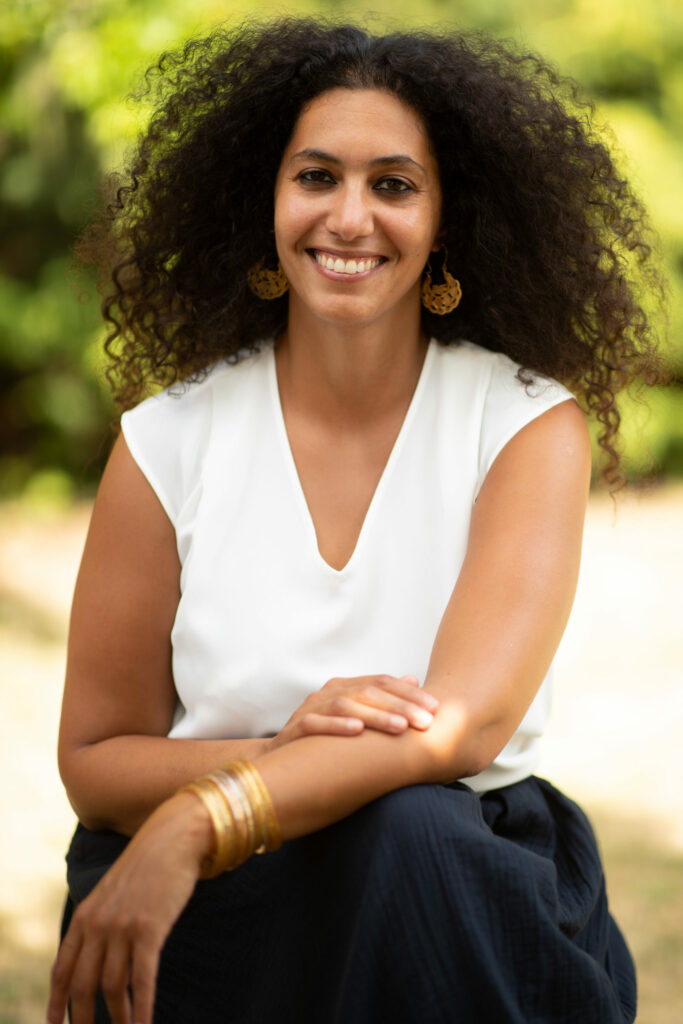
Alma Khasawnih is Assistant Professor of Women and Gender Studies at TCNJ. She obtained a BS in Environmental Policy and Behavior from the University of Michigan, an MA in Community Art Education from Rhode Island School of Design, and a PhD in Feminist Studies from the University of Washington. Dr. Khasawnih researches access to the street in post-colonial and settler-colonial nation-states as a site of understanding and articulating access to citizenship. Alma’s research projects examine ephemeral visual culture production (graffiti, murals, and other forms of street/public art) as stand-alone material objects that orient, disorient, and reorient feminist debates on social political cultural movements within urban geographies and the phenomenology of erasure, co-optation, and resistance. Alma is invested in examining how urban beautification projects and cleansing public spaces are part of authoritarian visual culture and politics of respectability that aim at policing minoritized bodies in public spaces.

Richard Kamber is Professor of Philosophy, Religion, and Classical Studies and is Coordinator of the Self-Designed Major Program and Interdisciplinary Concentrations at TCNJ. Dr. Kamber received his PhD from Claremont Graduate School and conducted postdoctoral study at Oxford University. His areas of interest include experimental philosophy, aesthetics, existentialism, pragmatism, film, genocide, and educational policy. Dr. Kamber is coordinator of TCNJ’s Experimental Philosophy Laboratory. He currently serves as President of The Association for Core Texts and Courses and is Board Member of The Greater Philadelphia.
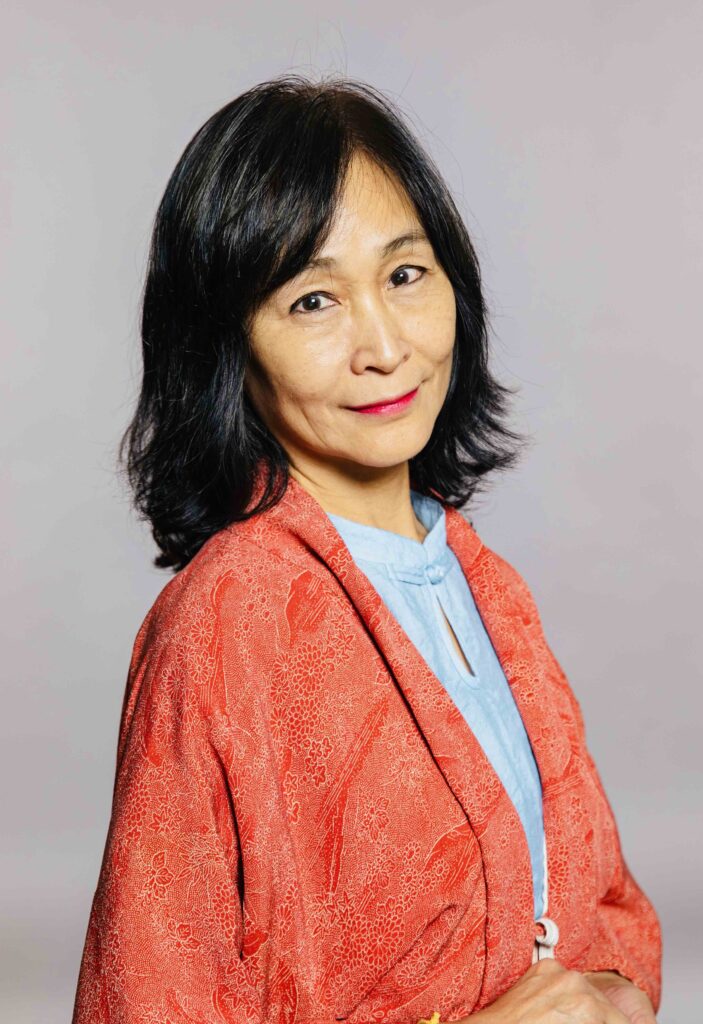
Celia Liu is the Academic Director of Chinese Studies and works in the Department of World Languages and Cultures. With a cross-disciplinary background, Dr. Celia Liu holds a Master’s degree in Taxation and another in Accounting from the Fordham University Gabelli School of Business, a Master of Arts in Teaching from Rutgers University, and a Doctorate degree from the University of Pennsylvania. Her book, Ancient Texts with Modern Values, was published in Taiwan, further cementing her research contribution to the field of language teaching. In 2022, TCNJ received a prestigious Fulbright Hays grant from the U.S. Department of Education.
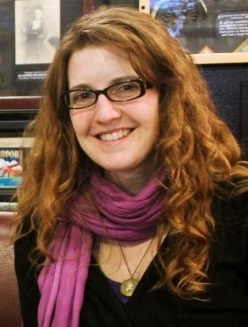
Mindi McMann is Associate Professor of English at TCNJ. She received her PhD in English from the University of California, Davis. Her research and teaching interests focus on the intersections of literature, politics, ethics, and nationalism, using contemporary British and Anglophone literature as the center point of her work. More specifically, her work addresses the ways in which literature both shapes and represents shifting national identities in a globalized context based on a range of factors such as race, ethnicity, class, and religion. Her work has appeared in Modern Fiction Studies. Currently, both her work and teaching continue to explore perceptions of alterity in South Africa, the Caribbean, and Britain. She teaches classes at TCNJ in postcolonial literature and contemporary Anglophone literature.
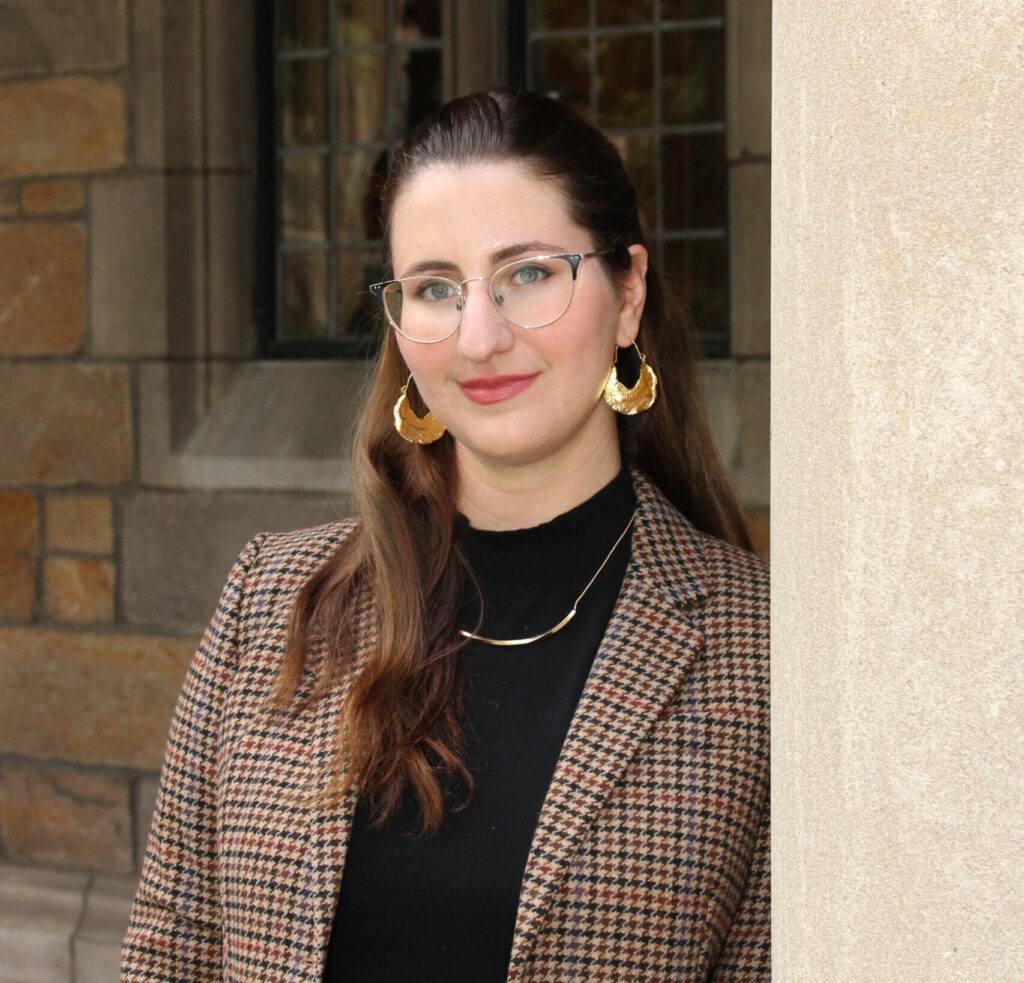
Sara Morell is an Assistant Professor in Political Science. She received her B.A. from Swarthmore College and her Ph.D. in Political Science from the University of Michigan. She started at The College of New Jersey in 2023.
Sara Morell’s research is at the intersection of gender and American politics. Her current book project considers the relationship between women candidate training organizations and increases in women’s political candidacies in the United States. This project demonstrates that the gendered signal sent by women’s candidate training organizations increases women’s beliefs that these organizations will address their material and psychological barriers to running. This has implications both for women’s individual-level ambition and state-level representation. Her research has been published in the British Journal of Political Science and she has received grants from Time-Sharing Experiments for the Social Sciences (TESS) and the American Political Science Association’s Women, Gender, and Politics Research Section.
At TCNJ, Sara teaches courses in American Government, Political Analysis (a course on the foundations of political science research), and Gender Politics. Sara currently lives in Philadelphia with her fiancé, Anna.

Lisa Ortiz-Vilarelle is Professor of English at TCNJ. Dr. Ortiz-Vellarelle received her PhD from Wayne State University. Her work specializes in 20th-century Multiethnic and Inter-American literature and autobiographical studies with specific interest in narratives of exile, immigration, and dictatorship throughout the Americas and their Diaspora. She regularly teaches courses on Latino/a/x literature in both the undergraduate and graduate programs. She is currently completing a book about Latina and Latin American women’s life writing on dictatorship tentatively titled Overwriting the Dictator: Americanas, Autocracy and Autobiographical Innovation.
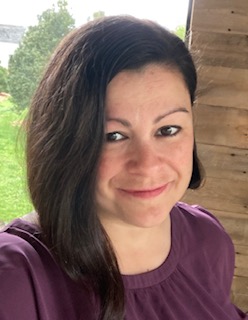
Anne Peel is an Associate Professor of Literacy in the Department of Special Education, Language, and Literacy. As a former high school English teacher in both Philadelphia and New Jersey, she now teaches literacy education and children’s literature classes, primarily to future teachers.

John C. Pollock, (PhD, Stanford; MPA, Maxwell School of Citizenship and Public Affairs, Syracuse; BA, Swarthmore) is Professor, depts. of Communication Studies and Public Health, The College of New Jersey (TCNJ). Dr. Pollock’s favorite activity is co-authoring with students, including about 180 papers presented at state, national, and international conferences, about 40 articles and chapters, all co-authored with almost 500 students over a 31-year career at TCNJ. His teaching interests include Health Communication, Human Rights, Journalism, and International/Global Communication. Dr. Pollock taught at Rutgers University and City University of New York (Queens College) and conducted research in India and Latin America. He serves on four editorial boards: Journal of Health Communication, Communication Theory, Atlantic Journal of Communication, and Mass Communication and Society. He has authored or edited eight books, including: Tilted Mirrors: Media Alignment with Political and Social Change – A Community Structure Approach (Hampton Press, 2007) and Media and Social Inequality: Innovations in Community Structure Research (Routledge, 2013), which were both finalists for the Jane Jacobs Award for best book in urban communication by the Urban Communication Foundation. The four most recent are Journalism and Human Rights: How Demographics Drive Media Coverage (Routledge, 2015); (co-edited with Mort Winston) Making Human Rights News: Balancing Participation and Professionalism (Routledge, 2017); (co-edited with Doughlas A. Vakoch) COVID-19 in International Media: Global Pandemic Perspectives (Routledge, 2021)’ and (co-edited with Douglas A. Vakoch and Amanda M. Caleb) COVID Communication: Exploring Pandemic Discourse (Springer, 2023). Dr. Pollock has published scholarly articles in Journal of Health Communication, Social Science and Medicine – Population Health, Journalism & Mass Communication Quarterly, Mass Communication and Society, Journal of Human Rights, Human Rights Review, International Communication Research Journal, Communication Research Reports, International Journal of Nursing Sciences, Newspaper Research Journal, Journal of International Communication, Mass Communication Review, Society, International Encyclopedia of Communication III, and Communication Yearbook IV, as well as The New York Times, The Nation, Industry Week, and Public Relations Journal. Winner of a Silver Anvil, the “Oscar” of public relations, Dr. Pollock received research grants from the Social Science Research Council, National Cancer Institute, and the United Nations Foundation. He was a spring, 2010, Senior Fulbright Scholar in Buenos Aires, Argentina. Founder of the health communication specializations in departments of both Communication Studies and Public Health at The College of New Jew Jersey, Dr. Pollock co-chaired the college Public Health Task Force that created baccalaureate, certificate, and MPH programs in public health.

Consuelo Preti is Professor of Philosophy at TCNJ. Dr. Preti received her BA in Philosophy from the George Washington University and her PhD in Philosophy from CUNY Graduate Center. Her areas of interest include the philosophy of language, the philosophy of mind, the history of early analytic philosophy. Dr. Preti is currently working on the development of G.E. Moore’s early philosophical views (The Metaphysical Basis of Ethics: The Early Philosophy of G.E. Moore, Palgrave/Macmillan, publication forthcoming). Recent works include “Some Problems of Moore Interpretation,” in Preston, ed. Analytic Philosophy: Interpretations (March 2017) and ”How to Read Moore’s ‘Proof of An External World’” (JHAP, March 2016).

Diane Steinberg is an Assistant Professor of English. She received her A.B. cum laude from Radcliffe and Harvard Colleges, her secondary education certification in history and English from the M.A.T. program at Duke University, her M.A. in Great Books from St. John’s College (Annapolis campus), and her M.A. in English with a Medieval Studies certificate from Indiana University–Bloomington. She teaches Approaches to Literature, various LNG classes, British and world literary history courses before the Restoration, British Romanticism, and LIT 499’s exploring political theory and British authors such as William Shakespeare and Jane Austen. With Felicia Jean Steele, she created LIT 367: British Theatre, taught in the winter term in London and Stratford-Upon-Avon. She advises TCNJ’s chapter of Sigma Tau Delta and serves as Vice President for the National organization. Sigma Tau Delta is the international honor society for students interested in English and American literature and language.

David Venturo is Professor of English at TCNJ. Dr. Venturo received his AB from Rutgers University, and AM and PhD degrees from Harvard University. Dr. Venturo is author of Johnson the Poet: The Poetic Career of Samuel Johnson and editor of The School of the Eucharist . . . With a Preface Concerning the Testimony of Miracles. He writes and teaches about 1600-1850 British literature, baseball and American culture, and the Beatles and popular culture. His recent publications include “Baseball and Material Culture” (The Cambridge Companion to Baseball), “Understanding Genre: Epic, Mock Epic, and Some Versions of Heroism from Milton to Pope” (The Blackwell Companion to British Literature, 1650-1837), and “Poems on Poetry” (The Oxford Handbook to British Poetry, 1660-1800). On campus, Dr. Venturo edits TCNJ Journal of Student Scholarship and serves as president of TCNJ’s chapter of Phi Beta Kappa.
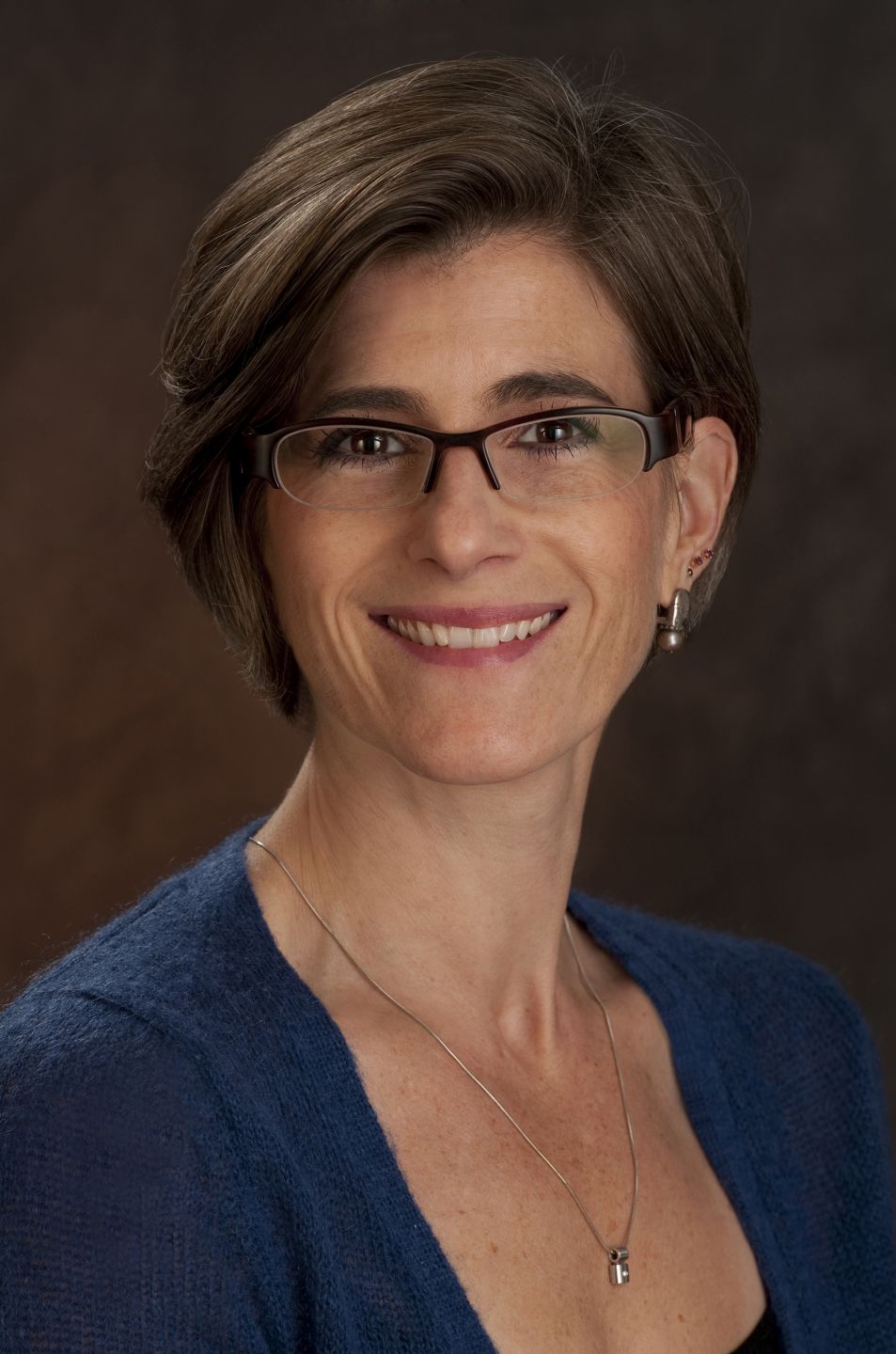
Jeanine Vivona is a professor of Psychology at TCNJ. Dr. Vivona obtained a BS from Union College and an MS and PhD from University of Massachusetts Amherst. As clinical and developmental psychologies, Dr. Vivona’s research focuses on psychotherapy process, language and identity development, and sibling relationships.

Ann Warner Ault is an Associate Professor of Spanish. She received her M.A. and Ph.D. in Spanish from Columbia University with a focus on Latin American literature and culture. She has presented and published on a range of topics including avant-garde art and literature, community-engaged learning, digital humanities, and study abroad. Ann led the TCNJ semester in Spain in 2015 and a TCNJ study tour to Peru in 2018. In 2016-2017 she served as interim assistant dean for The School of Humanities and Social Sciences. Ann received a New Jersey Manufacturers grant for 2018-2019 to work with TCNJ students, Dr. Susan Ryan and Trenton’s Puerto Rican community to create short documentaries about the history of Puerto Ricans in Trenton. She is currently collaborating with Dr. Robert McGreevey, Isabel Kentengian and several community organizations in Trenton to implement a large-scale oral history project with Trenton’s Latinx community.